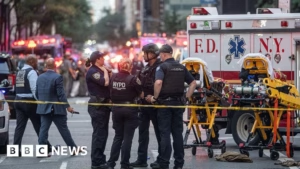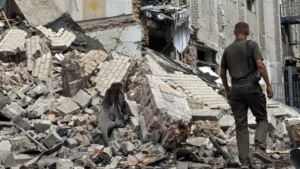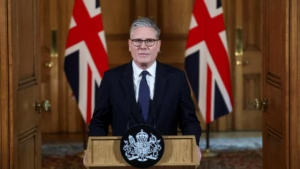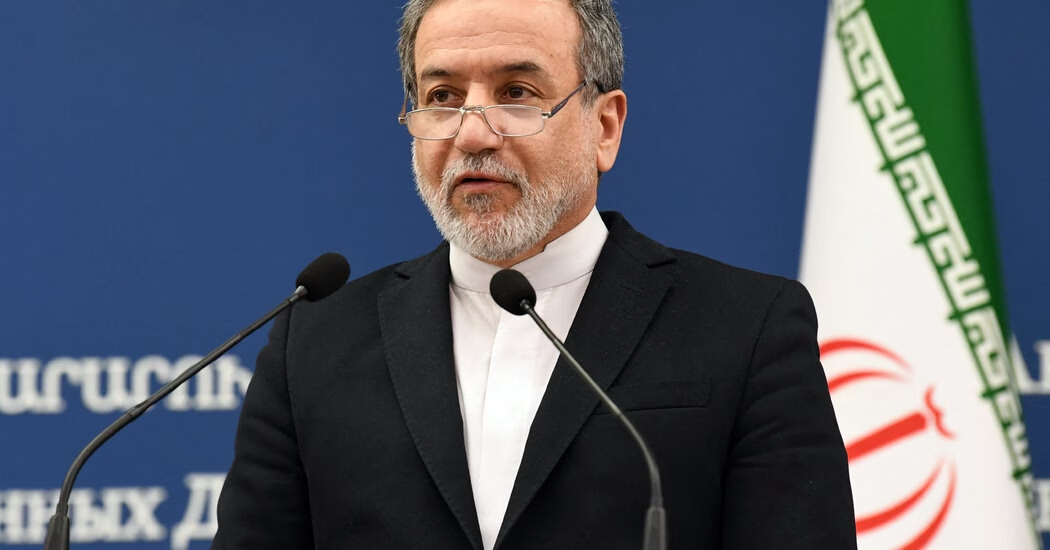Iran on Thursday issued a response to President Trump’s letter that had called for direct negotiations with the Iranian government regarding curbing the nation’s expanding nuclear program. Iran chose a middle path, neither ruling out negotiations with the US nor accepting in-person talks with Mr. Trump. Kamal Kharazi, a top advisor to Iran’s supreme leader, Ayatollah Ali Khamenei, stated that “The Islamic Republic has not closed all the doors and is willing to begin indirect negotiations with the United States.” Since the 1979 Islamic Revolution, Iran and the US have not had official diplomatic relations; however, they have engaged on matters like the nuclear program, detainee swaps, and regional tensions.
On Wednesday, Iran delivered its written reply to Mr. Trump through Oman. Iran’s foreign minister, Abbas Araghchi, said that Tehran had offered a comprehensive perspective on the issues raised by Mr. Trump and on the overall situation in the Middle East, according to the official news agency IRNA. He also stated, “Our policy is to not negotiate directly while there is maximum pressure policy and threats of military strikes. But indirect negotiations can take place as they have in the past.”
In March, Anwar Gargash, a senior diplomat from the United Arab Emirates, went to Tehran to deliver Mr. Trump’s letter, which contained “threats” and an opportunity. Steve Witcoff, the Trump administration’s special envoy to the Middle East, revealed in an interview that the letter urged Iran to “talk, clear up the misconceptions, (and) create a verification program.” An unnamed Iranian official claimed that Mr. Trump had established a two-month deadline for Iran to negotiate.
Sanam Vakil, director of the Middle East and North Africa program at Chatham House, a London-based research institute, stated that the letter-writing between Tehran and Washington demonstrates that both sides are “sizing each other up” and utilizing different channels to determine the outcomes they can achieve.
Conservatives and hard-liners in Iran have opposed talks or concessions, while moderates and reformists have argued for the necessity of negotiations to lift sanctions. President Masoud Pezeshkian, a moderate, has expressed support for negotiations but stated he will follow Mr. Khamenei’s directive. Mr. Khamenei’s office recently signaled a shift in tone, based on Mr. Kharazi’s comments.
If talks fail, Israel and the United States have suggested the possibility of launching targeted strikes on Iran’s two main underground nuclear facilities, Natanz and Fordow. However, this would risk triggering a wider regional war since Iran has vowed to respond to any strikes on its soil. Iran maintains that its nuclear program is for peaceful purposes, but Western countries and Israel are concerned that Tehran is secretly planning to develop a weapon.
In 2018, Mr. Trump withdrew the US from the 2015 nuclear deal with Iran and imposed severe economic sanctions. This prompted Iran to discontinue its commitments to the deal and increase uranium enrichment from 3.5 percent to 60 percent. The United Nation’s nuclear watchdog has reported that Iran has amassed enough enriched uranium to make several bombs, but no evidence has been found that Iran is weaponizing its program. Meanwhile, Ms. Vakil of Chatham House stated, “Iran is at a crossroad, between having an off ramp or being militarily hit. It is a year of really consequential decisions that could either provide Iran with a lifeline or lead to further strikes and the weakening of the government.”
Source: https://www.nytimes.com/2025/03/28/world/middleeast/iran-negotiations-trump-letter.html






